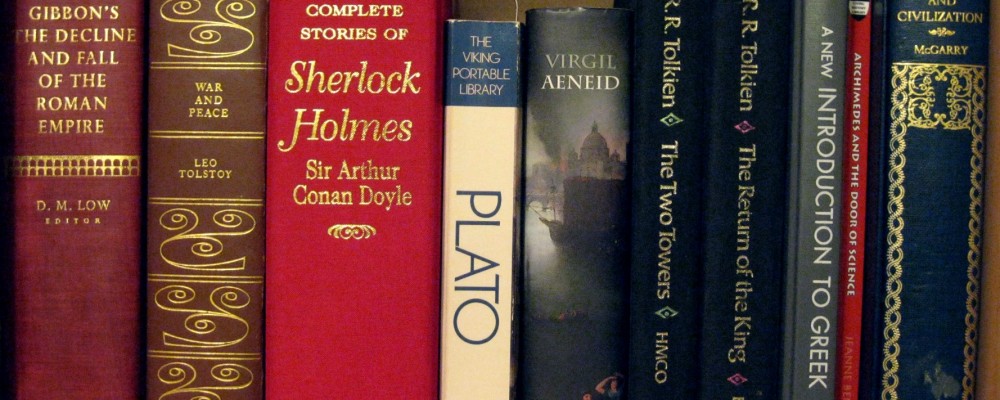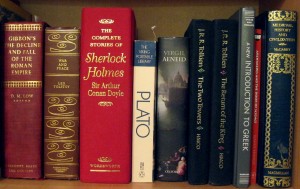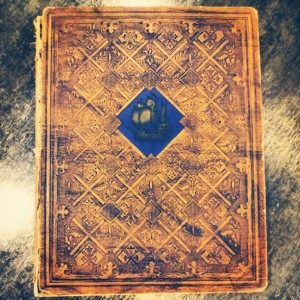Why You Should Read

When I was a little boy, I wasn’t exactly “normal”. I just wasn’t like the other kids of my day and age. The “normal” kids woke up, went to school, came home, did homework, watched some TV, played some video games, and then hung out with friends. My family, however, did not have a TV, and video games were thought to be a direct concoction of the devil.
When I was ten years old, I was outfitted with a cowboy hat, a western-cut shirt, wrangler boot-cut jeans, a belt with a big round buckle, boots, spurs, and a six shooter. Of course, I had absolutely no idea what I was doing, but I thought I was a pretty legitimate cowboy.
If you are at all like the kids back then, you might be wondering what on earth I did to entertain myself. I will tell you. It is simple really. I read.
That is right, I didn’t watch TV, I didn’t play video games, and I read books. I was an odd child, at least when compared to the norm.
However, now that I am older, I am very thankful for the way I was raised. Back then I thought it was a shame that I had to miss out on all the good movies and TV shows, but today, I am really thankful that I missed them and instead spent my time buried in books.
In fact, I spent so much time buried in books that the librarians at my local library knew me by name. Every month I would come in and check out thirty books, the library’s maximum, and I would go home and read them. I read nearly a book a day for most of my childhood, but I’m not complaining about that at all.
I read every Nancy Drew book, every Hardy Boys mystery, each of the Little House on the Prairie books seven plus times, and a large assortment of other books. I read almost the entire children’s book section at my local library. (Which isn’t as impressive as it sounds because the section is rather small, but still, it was quite an achievement.)
The point is, if I could get my hands on it, I would read it. For example, one day I found a WWII history textbook in the kid’s section, so I checked it out and read it cover to cover. I liked that textbook so much that I checked it out again a few months later and read it cover to cover a second time.
Perhaps you are now wondering if I have written this post simply to brag about all the books I have read. Thankfully for you, that is not the case. I am writing this because I love reading. Reading delights and excites me. However, the average person does not share my love of reading, and when you love reading as much as I, that is a sore disappointment.
The National Endowment for The Arts released a study that had enlightening statistics. For example, it concluded that, “Nearly half of all Americans ages 18 to 24 read no books for pleasure.” But it isn’t just my age group that is reading less. It went on to say, “The percentage of 18- to 44-year-olds who read a book fell 7 points from 1992 to 2002.”
We have all heard the statistics, so I won’t spend much time discussing them, but why do they matter? Well, as I hope you will see, reading is extremely important, and when a culture stops reading, it tells you quite a lot about that culture.
There are several reasons why I believe reading is incredibly important. Reading obviously increases your vocabulary and helps you with your communication skills, but I like it for reasons beyond the obvious.
When I first began studying logic, my logic textbook had a lesson on why it is important to listen. The lesson essentially stated that listening is critical to the thinker because it allows us to get other people’s viewpoints.
I do not, however, believe that we are limited to listening with our ears. Reading is a form of listening, and when we listen, we learn. While we read, our viewpoints become stronger because we can see other’s viewpoints and we can compare and contrast.
Have you ever been reading when you suddenly run across something contrary to what you believe, but when you read the author’s explanation of his ideology you just get it, and you agree? I have. I think that moments like those are a large part of why reading is important.
We all want to be right, right? Well, to be right, one must be informed. How should Carl Marx know that communism is a horrible idea if he has no one explaining the reason to him? How can non-Christians realize that Christianity is the truth if we are not explaining it to them? How should our government govern properly if we are not able to bring out the voters to vote for the right side?
Communication is incredibly important, and reading the written word is perhaps the most precise form of communication. When we are reading we can see each individual word, we can go back and double check things, and we can stop and think before moving to the next sentence. Opportunities such as these are not found elsewhere.

Several books that show the diversity in which they can come.
Not only does reading allow our viewpoints to be more informed, but it also exercises our critical thinking skills. I don’t know about you, but when I read something that I strongly disagree with, I somehow become really familiar with all of the reasons that I disagree with whatever it is that I am reading.
I also love to cross-apply things I have read to what I am currently reading. I love taking books by free market economist and using their arguments to mentally tear apart that New York Times semi-socialist article as I read it. I love doing that, it makes me feel like a complete economics nerd, which I am.
The advantages of reading are not, however, limited purely to nonfiction. When we read stories, whether mysteries or romance novels, our imaginations are activated. Obviously, the theater of the mind is something that becomes more clear with practice. Regular reading of fiction is a great way to spark the creative side of you mind.
If I had to sum all of the benefits of reading up into one sentence, I would say that everyone should read because reading gives us a broad perspective, it sharpens our critical thinking skills, and it sparks the fire of creativity in our mental world. There are other benefits as well, benefits ranging from increased vocabulary to enhanced comprehension, but my favorite advantages that come from reading are the ones that directly effect the rational mind.
Rene Descartes, the philosopher famous for the quote, “cogito, ergo sum” (which is Latin for “I think, therefore I am), insightfully said that, “The reading of all good books is like a conversation with the finest minds of past centuries.”
I must ask why we make our own mistakes when we can learn from those of others’? Why would we try to reinvent philosophy when we can simply glean it from the pages of a great book? It is my request of you that you educate yourself; it is my request that you strive for excellence, and in the pursuit of excellence, read. Perhaps it is unnecessary for you to read as much I did when I was younger, but to be informed, it is important to read regularly. Take the challenge, be excellent.

Discussion — 5 Responses